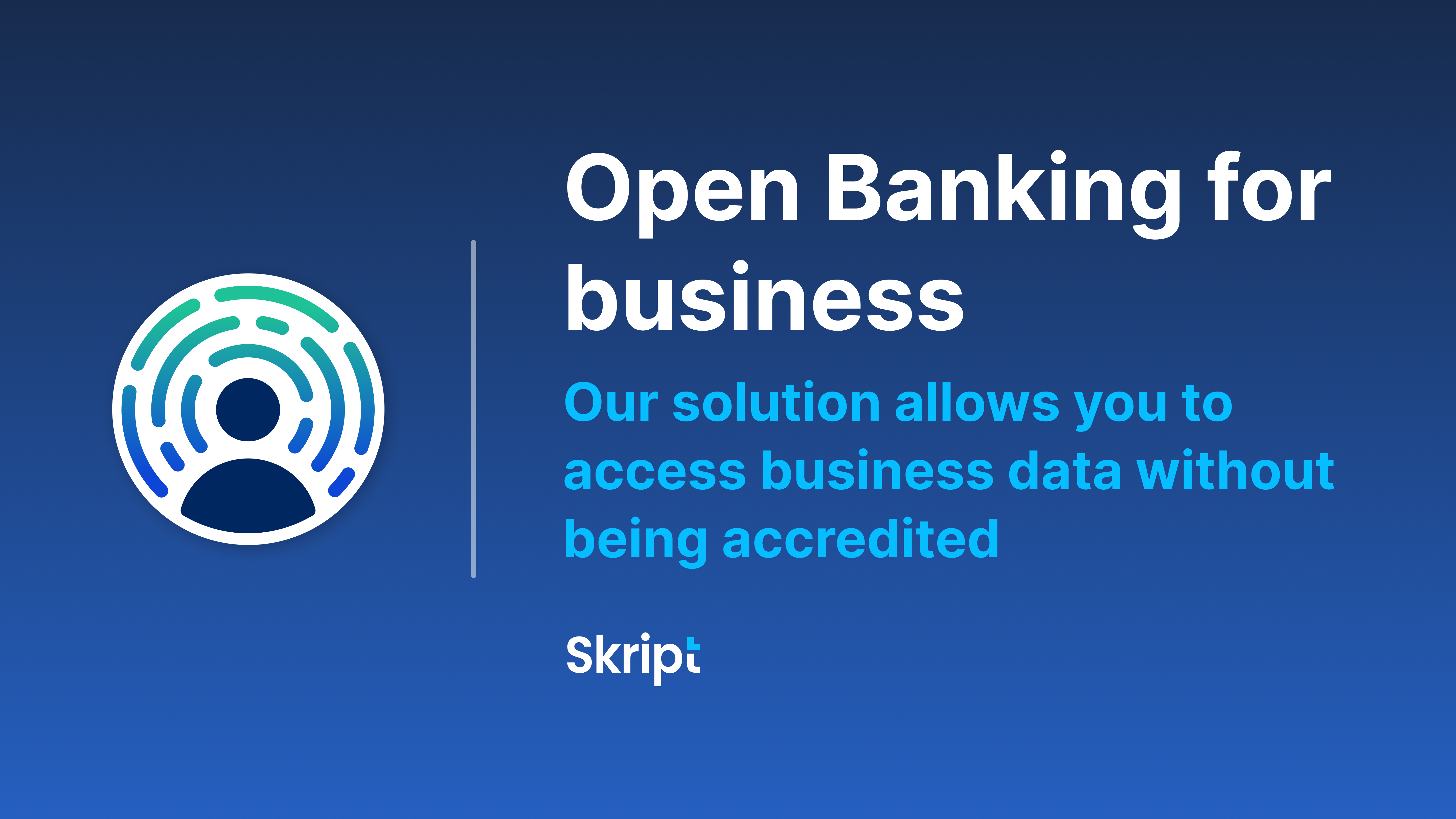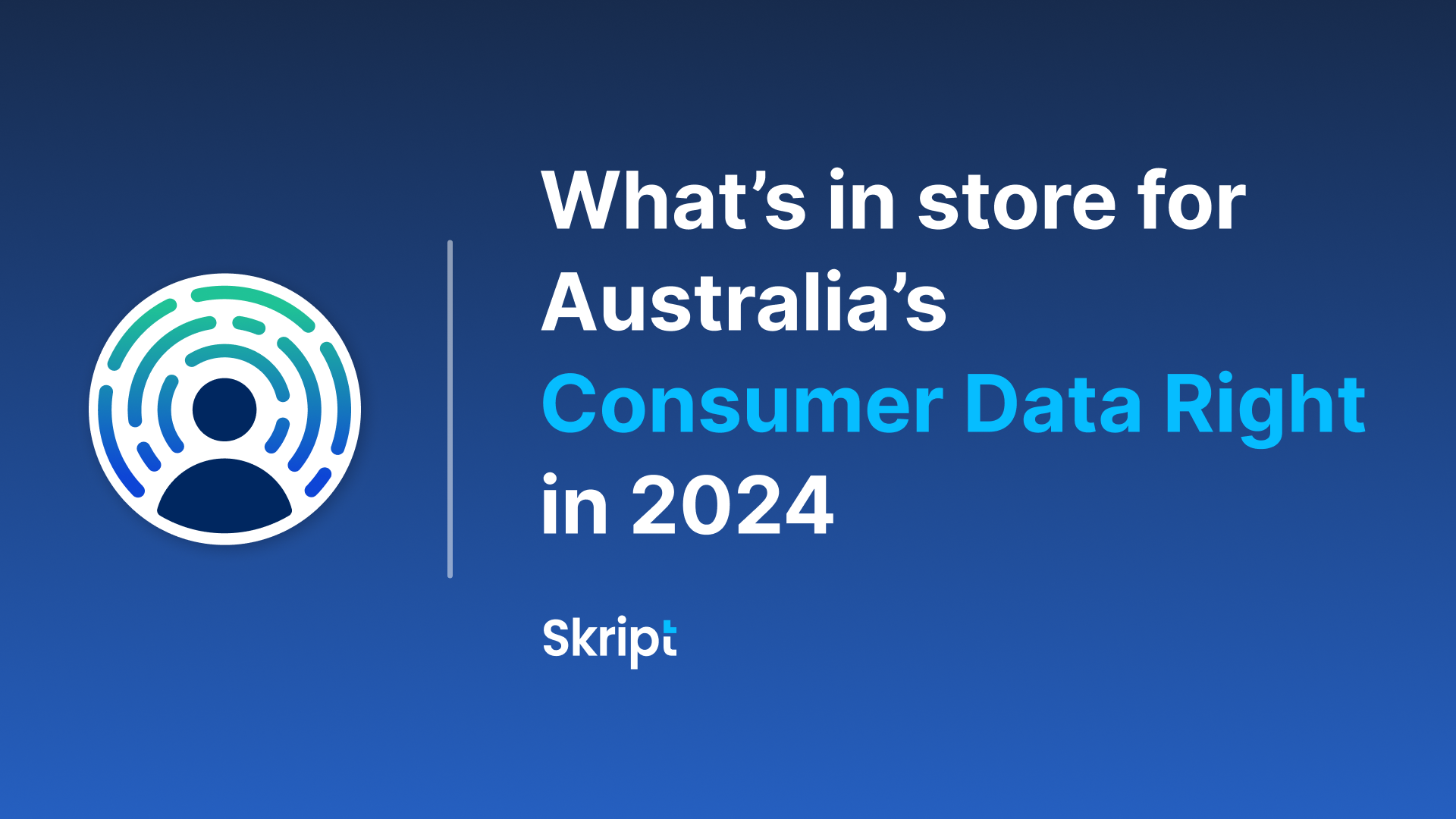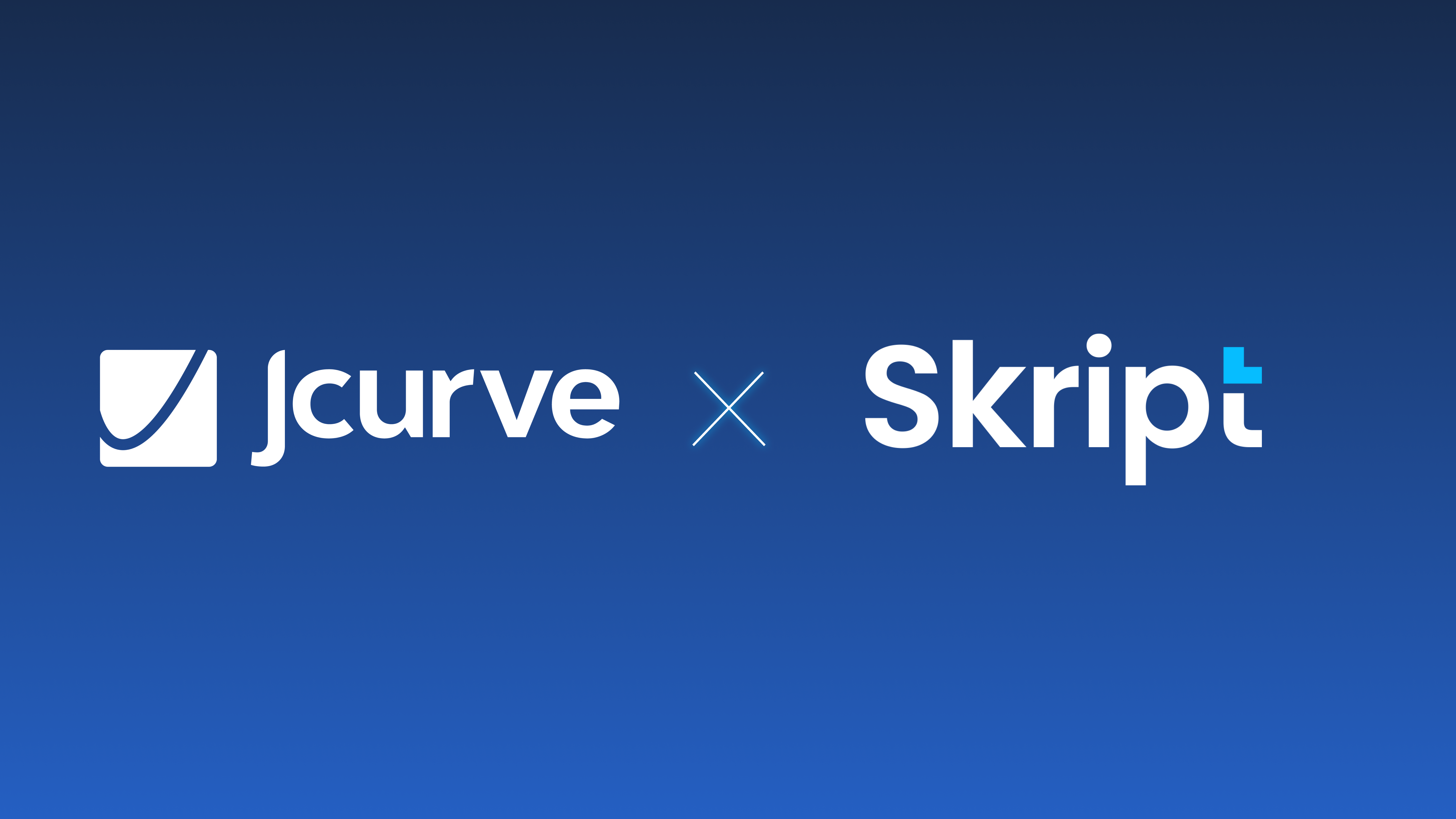Thanks to a recent legislation change, businesses can now access business bank data via Open Banking (aka Consumer Data Right), without having to jump through legislative hoops. The breadth and depth of the data available is far beyond what traditional methods could provide.
Business bank data feeds have been used by various businesses for a long time. Yes, it’s not the shiniest use case out there but a very important one for the Australian economy.
Many large businesses, such as Xero, MYOB, BGL and various ERP systems have long been using bank data feeds.
Skript has tailored its Open Banking solutions to cater for the growing demand for secure access to business bank data.
So what is it used for?
Simple. Bank transaction reconciliations.
Well, it’s not that simple really because there’s a lot of nuances with business bank data, and you have to get into the weeds of it all to understand what they are.
Up until now, all of these business solutions would get their bank feeds either via bilateral agreements with the banks, or screen scraping. Both methods come with lots of limitations.
Let’s explore how CDR data is ready for the Australian business market. Two key factors distinguish it – CDR access requirements, and the breadth and depth of the data available.
CDR Access Requirements
As of 1 Dec 2023, the changes in CDR legislation empower businesses to share their data freely without requiring accreditation from the recipient entity. Prior to this alteration, businesses seeking access to business bank data had to comply with a host of regulatory requirements before interacting with CDR data.
The newly introduced access method is called Business Consumer Disclosure Consent (BCDC).
Breadth and Depth of CDR Data
With both bilaterally agreed bank data feeds and screen scraping solutions, the breadth and depth of the bank is somewhat limited. In a nutshell, limits are imposed on the number of banks you can access, the types of accounts available, and the lack of historical data.
With Open Banking (CDR), you can access all accounts that are publicly available, and data can go back as far as 2018. This includes over 100 banks with a domestic offering. The type of accounts accessible include: transaction accounts, savings accounts, loan accounts, term deposits and credit card accounts.
Open Banking is the Future of Business Bank Data Feeds
With the introduction of BCDC, businesses can now access business bank data, without having to go through the whole accreditation process or needing to be sponsored as a CDR Representative.
Skript has developed its solution to the specifications of BCDC, including the business specific consent process, and offers a unique Open Banking proposition to businesses needing access to their business customers’ data.
The legislative shift for business data has already led to a substantial increase in CDR adoption, promising significant advantages for the broader business economy.
About Skript
Skript is a fully Accredited Data Recipient under the Consumer Data Right, and has verified access to all 114 Australian banks.
Skript specialises in delivering Open Banking business data solutions, offering both API and application layer capabilities.
Comprising a team of experienced former banking technologists, Skript has been at the forefront of delivering bank data feeds since before the inception of Open Banking.
To find out more, reach out to Skript at hello@skript.com.au.



